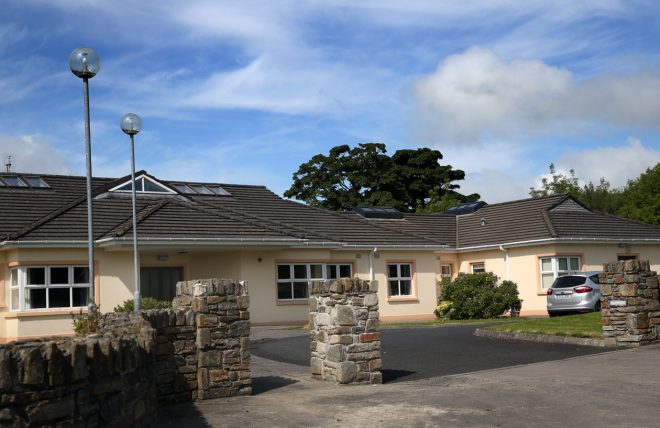
Supervised Residential Unit at Knocknamona
A CARE centre for vulnerable children in Letterkenny was closed “within 24 hours” of a damning Hiqa report last month, it has emerged.
Concerns were raised for the welfare of two teenagers with mental health difficulties following the closure of the Supervised Residential Unit in Knocknamona, Letterkenny, in May.
Túsla, the Child and Family Agency, moved two residents to a different care home 200km away in the Midlands, following a Hiqa follow-up inspection, while a third resident was put in foster care. It is understood the closure followed concerns about staffing levels.
A spokesperson for the Health Information and Quality Authority confirmed yesterday, Thursday, that one report on the centre was published on its website – from May 2015.
“HIQA carried out a follow-up inspection of this centre in March 2016. The inspection identified a number of issues that Túsla were required to address in relation to the delivery and management of care in the centre.
“Túsla’s decision to close the centre was communicated to HIQA on 12th May, 2016. The March 2016 inspection report has not been published to date,” the Hiqa spokesperson said.
According to last May’s Hiqa report, the centre is an attractive purpose-built seven bedroom, detached house which provided long-term residential care for up to five boys and girls aged
between 12 and 17 years upon admission.
It provided care for young people from Donegal, Sligo, Leitrim and West Cavan. At the time of inspection there were four young people living in the main part of the centre. Another young person aged 17 was living in the semi-independent facility.
“The aim of the centre was to address the individual needs of each young person, enabling them to reach their potential and to develop physically, intellectually and emotionally within a safe and caring environment,” the report read.
The Authority found that of the seven standards assessed only one standard was met while six required improvement – which means that there are deficits in the quality of services and systems and that some risks to children may be identified.
However, the report also noted that no significant risks were identified in relation to none of the standards, that is where children have been harmed or there is a high possibility that they will experience harm due to poor practice or weak systems.
An action plan was subsequently completed and submitted to Hiqa within two months (July 24, 2015) in which the centre’s management set out the actions that should be taken in the six areas. The proposed timescale for these works was to be completed by the end of November 2015.
There are approximately 100 private and voluntary children’s residential centres across the country catering for 341 children.
There are two categories of residential child care in Ireland. The first is small, community-based group homes for children who have not offended, but who cannot live at home. The homes are within the community and they recreate normal family life, and provide the same care and protection, in so far as possible. The Letterkenny facility is the only one of its kind in Donegal.
According to latest Túlsa figures, there were 212 Donegal children in care in January 2016.
Of those, five were in Residential General Care, 161 in foster care, 41 in relative foster care while the remaining five in other care placements.
The figures also reveal that there are 828 ‘open cases’ of child protection and children in care cases in Donegal – 547 of those have been allocated a social worker with more than one in three 279 (33.8%) awaiting allocation. Of that figure, 49 (17.6%) are described as being ‘high priority’ cases.
In a statement, Túsla confirmed Cleary House had been closed indefinitely.
“Due to the difficulties identifying a suitable replacement following the departure of a Centre Manager, Túsla took the decision to suspend temporarily the service at a children’s residential home in the Donegal area,” a Túsla spokesperson told the Donegal News.
“This decision was taken in the best interests of the children who lived there, as it was felt that the quality of the service provided to the children could not be guaranteed in the continued absence of a centre manager.”









